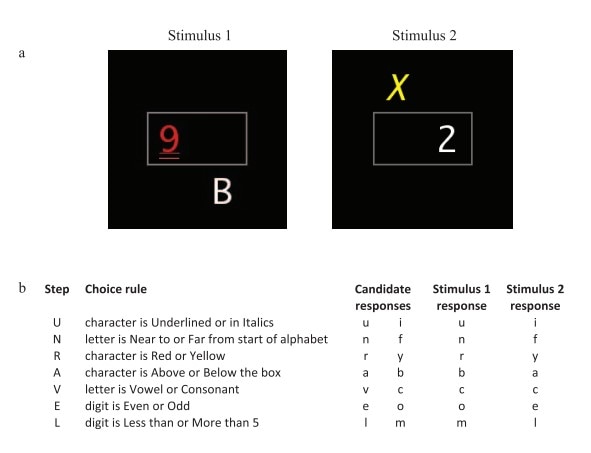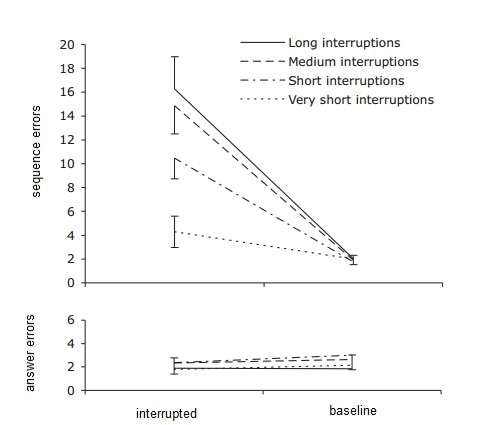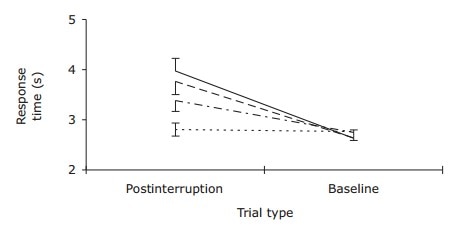But what if you’re not driving? Suppose you’re a student working a multi-step math problem and an announcement comes in over the school PA system.
In a new study Erik Altmann and his colleagues investigated the effect of the duration of the interruption. They were especially interested in duration because delay is known to have a robust effect on memory, but is likely to have an effect on attention. (The importance of delay is explained below.)
In this experiment, the multi-step main task involved a display of a digit and a letter, about which subjects had to make seven judgments, in a particular sequence. The graphic below explains the task.
But if the problem is that your distracted, we’d think that both types of problems would be more likely—an interruption would make you lose your place in the sequence (sequence errors) and make you more prone to mistakes in when answering (answer errors).
The results were quite clear, as shown in the figure
As in other experiments, this one showed that an interruption incurred a cost to response time upon return to the main task. In this experiment, this cost increased with delay, and in light of the error data, we’d interpret this effect as being due to subjects struggling to remember where they were in the sequence.
So administrators...if you haven't set a policy that the PA system is silent during class, think about doing so!





 RSS Feed
RSS Feed